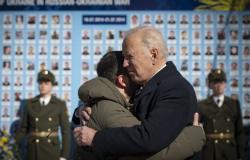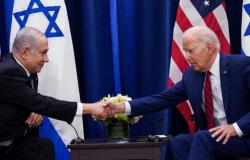The brutal terrorist attack that occurred last Friday (22) in Moscow, capital of Russia, which culminated in the massacre of 143 people, shocked the world.
The attack, which also left 182 people injured and more than 90 missing so far, was carried out at the Crocus City Hall, a concert hall located on the outskirts of the Russian capital, and was claimed by the Islamic State of Khorasan – or ISIS- K, in its acronym in English, is a branch born in 2015 of the terrorist group Islamic State (IS) that operates, with a smaller force, in the Middle East.
ISIS was fought and practically defeated by international forces in 2019, but, apparently, through its terrorist cells spread worldwide, such as ISIS-K, the group may once again be preparing to haunt the international community.
Images of people’s despair and the brutality of the murderous terrorists who perpetrated the cruelty in Moscow brought back to the memory of the world’s population the fear and anguish that IS terrorists caused when they carried out the terrible massacres in Europe in 2015, mainly in France.
Those responsible for the attack in Moscow have almost all been arrested by local authorities. To date, 11 individuals with connections to the attack have been captured, including the shooters.
In an analysis carried out on the website of think tank Council on Foreign Relations (CFR), Bruce Hoffman, a counterterrorism expert, highlighted that the attack in Moscow serves as a “reminder” of IS’s lethal capacity and demonstrates its new ability to reorganize and infiltrate powerful countries.
Hoffman claims that ISIS has carried out “more than half a dozen attacks in Russia since 2016” and that terrorists have long considered Vladimir Putin’s country “as much an enemy of the Muslim people as the United States.”
In the analysis carried out, the expert highlighted that the presence of Russians in the ranks of ISIS-K since 2017 may have contributed to the group’s operational capacity in Russia. These individuals could have educated new recruits with detailed information about vulnerable targets in the country. According to Hoffman, currently the terrorist branch of IS that claimed responsibility for the attack in Moscow may have around 6,000 men in its armed wing.
In an interview with People’s GazetteRicardo Caichiolo, professor of International Relations at Ibmec in Brasília, said that Russia continues to be a “preferred target” of IS terrorists.
The professor points out that ISIS-K, the branch of the terrorist group, “holds a feeling of revenge due to the Russian foreign policy carried out in recent decades”.
“We can highlight the invasion of the former USSR [União
Soviética] in Afghanistan, Russian action in Chechnya – whose population is majority Muslim – to stifle demands for independence, and Russian support given to the regime of Syrian President Bashar al-Assad. It is worth remembering that in September 2022, ISIS-K claimed responsibility for a bomb attack in front of the Russian embassy in Kabul [capital do Afeganistão], which killed two employees and three other people. This fact makes it clear that Russia, its nationals and diplomatic representations will remain important targets for the terrorist group”, says Caichiolo.
Greg Barton, an expert on Global Islamic Politics at Deakin University in Australia, wrote an analysis of the site The Conversationwhere he notes that the attack in Moscow represents an alarming sign that both ISIS and al-Qaeda are resuming their international terrorist campaign.
“Friday night’s attack in Moscow was a nightmare, but unfortunately the horror is probably just beginning,” said the expert.
According to Barton, both ISIS-K and al-Qaeda are growing stronger under the Taliban regime in Afghanistan.
“ISIS-K faced tremendous pressure from Afghan Special Forces and American troops prior to the full United States withdrawal from the country in 2021. While this pressure continued under Taliban rule, ISIS-K has grown in strength in recent years, with the rise of thousands of fighters, who are now operating in almost all of Afghanistan’s 34 provinces,” said Barton.
For the expert, “Friday’s attack is a clear reminder that we must not look away and continue to wash our hands of any attempt to improve things in Afghanistan.” He warns that the continued growth of both ISIS-K and al-Qaeda in Afghanistan should “concern us much more than we have admitted” and adds that “there are no easy answers [sobre como impedir o crescimento de ambos os grupos]but turning your back and doing nothing will only make the situation worse.”
Professor Caichiolo argues that the attack in Russia does not necessarily indicate a resurgence of the Sunni terrorist group as an international threat, but rather reaffirms its continued threatening presence, which persists over time, affecting a range of countries and regions constantly.
“In fact, the Islamic State has seen a resurgence compared to what it was just under a decade ago, when it took advantage of the ongoing civil war in Syria to create its own state in the middle of Iraq and Syria. However, although the attacks committed by the group have decreased in numerical terms, they continue to occur at high levels. According to a report published by The Washington Institute for Near East Policy, since March last year, the Islamic State has claimed responsibility for 1,121 attacks, which killed or injured around 4,770 people,” he said.
Days before the attack in Moscow, Germany had already announced the arrest of two Afghans suspected of planning an attack on the Swedish Parliament. Both individuals, identified by German authorities as an IS member and a supporter, were receiving instructions from the terrorist group and collecting money to carry out the attack, which would be IS’s “response” to the burning of Qurans that took place in the Scandinavian country.
According to information from the agency Associated Press (AP), German Interior Ministry spokesman Cornelius Funke said shortly after the attack in Russia that the threat from Islamic extremists in the country remained “acute.”
In France, the terrorism alert was raised to the maximum level days after the attack in Moscow. French Prime Minister Gabriel Attal announced the measure on Sunday (24), highlighting the seriousness of the terrorist threats facing the country, which already suffered from IS in 2015.
President Emmanuel Macron even revealed that ISIS-K has already attempted to carry out “several” attacks in France. The planVigipiratean instrument of maximum surveillance and prevention against terrorism, was activated in its most intense form in the country, which will hold the Olympic Games from July onwards.
In his analysis of the The Conversation, Barton highlighted that European authorities have arrested several ISIS-K terrorists on several occasions. In his view, the attack in Moscow highlights the “immediate and substantial threat posed by the group”, after years of warnings about its ability to resume an international terrorist campaign.
“If ISIS-K is truly responsible for the Moscow attack, we must prepare for more attempted attacks — not just in Russia, but across Europe,” Barton wrote.
In addition to France, Italy has also intensified security checks in recent days, especially in environments that are being frequented during this Holy Week.
In Serbia, according to information from AP, undercover police officers were seen carrying out patrols on the streets of Belgrade, the country’s capital, some of them with machine guns. In the United Kingdom, Conservative Party parliamentarian Jeremy Hunt said that the country must now be “absolutely” concerned about the possible return of IS, emphasizing the need for close vigilance against the threat that the terrorist group represents.
“The attack in Moscow should be understood as a new warning that we are in the early stages of a new terrorist paradigm that threatens Europe and will probably be linked to the figure of ISIS-K as the most influential terrorist actor, capable of coordinating and carrying out actions sophisticated and well-directed terrorists that currently surpass even the capabilities of al-Qaeda or the central structure of the Islamic State”, quotes an excerpt from the article by the International Observatory on Terrorism Studies (OIET).
Power of reorganization and dominance in North Africa
Professor Caichiolo points out that, with the intensification of combat actions against IS between 2014 and 2017 in Iraq and Syria, “its members reorganized and settled in other regions and countries”. This process may indicate that the capacity for territorial dispersion is one of the outstanding characteristics of IS.
Caichiolo cited the establishment of the ISIS-K branch in Afghanistan as an example of this process of reorganization of the Sunni terrorist group, stating that it is from within the country run by the Taliban that it has been planning its attacks.
Despite this fact, Caichiolo recalled that ISIS-K still faces resistance from the Taliban, who consider IS a rival.
Amira Jadoon, a terrorism expert at the West Point Military Academy in the US, and Andrew Mines, a researcher associated with the Program on Extremism at George Washington University, say in a 2021 article in The Conversationthat the dispute between the Taliban and ISIS-K occurs because the IS branch “views the Taliban as its strategic rivals” and labels the group that controls Afghanistan “as ‘dirty nationalists’ with ambitions only to form a government restricted to its borders of Afghanistan”, which, according to experts, “contradicts the Islamic State’s objective of establishing a global caliphate”.
According to Professor Caichiolo, in addition to spreading within Afghanistan, IS and its terrorist branches are managing to establish themselves with strength in North Africa.
At the moment, the African continent, according to Caichiolo, “is home to a significant number of IS members, with strong propaganda established in sub-Saharan Africa”.
Caichiolo said that the terrorist group’s “recruitment activity” is “particularly active” and reaches countries such as Nigeria, the Democratic Republic of Congo and Mozambique.
“Africa is the place where almost half of global deaths from terrorism occur, but such occurrences do not achieve media repercussions, if we compare to the emphasis given to the attack that recently occurred at the concert hall in Moscow. The Islamic State is haunted not only by terrorist attacks, but also by advancing territorial control in some regions where they are establishing their ‘provinces’. A worrying situation in this sense is occurring in regions of Mali, Mozambique and Somalia”, said the professor.
Caichiolo explains that IS also manages to attract foreigners from different nations, “including China, Saudi Arabia and Western countries”, highlighting that they also make use of specific propaganda networks, which even include the use of regional languages such as Tajik, particularly spoken in Central Asia, which serves precisely to communicate and recruit individuals who reside in countries in that region.
Infographics Gazeta do Povo[Clique para ampliar]






